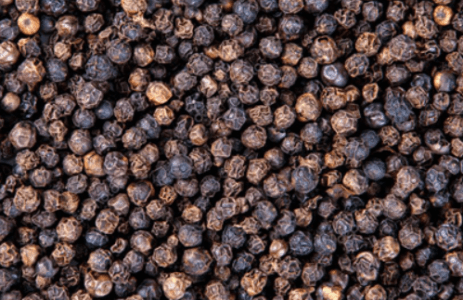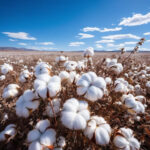Black pepper, known as the “king of spices,” holds a special place in the culinary world, especially in India. With its origins deeply rooted in the southern state of Kerala, black pepper cultivation has become a significant agricultural practice in many states across India. In this article, we will explore the cultivation process of black pepper and delve into the top five improved varieties that contribute to India’s reputation as a leading producer of this spice.
Cultivation of Black Pepper: A Farmer’s Delight
Cultivating black pepper is relatively easy and does not require extensive training. Opting for organic cultivation methods can significantly enhance production. Farmers typically use the cutting method, planting pepper cuttings at small distances in rows, with bamboo or scaffolding for support. Interestingly, a single black pepper plant can continue to produce for up to 25 years, making it a long-term investment for farmers.

Ideal Climate and Soil Conditions
Black pepper thrives in red laterite and red best soils, with a pH value of 5 to 6 being ideal. A mild cold climate, with temperatures between 10 to 12 degrees Celsius, is favorable for its growth. Additionally, black pepper plants require shade, which can be provided through natural or artificial means.
Also read https://yadfarm.com/trends-of-spices-in-india-february-insights/
Top 5 Improved Varieties of Black Pepper
Kottanadan Pepper:
This variety is considered the best in black pepper cultivation, particularly in South Kerala, India. It is known for its exceptional quality and high oil content, which contributes to its intense and spicy flavor.
Empyrean Pepper:
Another top variety, Empyrean pepper, is known for its robust flavor profile and is often considered a close competitor to Kottanadan pepper. It has a slightly lower oil content but is still highly valued for its taste.
Malabar Pepper:
This variety is named after the Malabar region in India, where it is extensively cultivated. Malabar pepper is characterized by its long, round shape and is favored for its bold and aromatic flavor.

White Pepper:
While technically not black pepper, white pepper is derived from the same plant but processed differently. The outer skin of the peppercorn is removed before drying, resulting in a lighter color and slightly milder flavor compared to black pepper.
Tellicherry Pepper:
Originating from Tellicherry in India, this variety is known for its medium size and intense, spicy flavor. It is often considered one of the best varieties for its bold taste.
Conclusion
Black pepper cultivation in India, particularly in Kerala, stands out as a testament to the country’s rich agricultural heritage and expertise. The spice’s popularity as the “king of spices” is well-deserved, given its versatile uses and health benefits. India’s topography and climate provide the ideal conditions for cultivating high-quality black pepper, making it one of the leading producers globally.
The cultivation process, while relatively straightforward, requires careful attention to detail, especially regarding soil quality, climate, and cultivation methods. Farmers who adopt organic practices can enhance both the quality and quantity of their yield, contributing to sustainable agriculture.
Overall, the cultivation and varieties of black pepper in India reflect the country’s commitment to excellence in agriculture, offering consumers a wide range of flavors and culinary experiences.
Click Here More Like This Information
FAQs
- Can black pepper be grown in any climate? Black pepper thrives in a mild, cold climate with temperatures between 10 to 12 degrees Celsius.
- What is the lifespan of a black pepper plant? A black pepper plant can continue to produce for up to 25 years.
- What makes Kottanadan Pepper unique? Kottanadan Pepper is known for its high oil content, making it a preferred variety for its quality.
- Where is Tellicherry Pepper cultivated? Tellicherry Pepper is associated with Telangana, India, known for its medium size and spicy taste.
- How is organic cultivation beneficial for black pepper production? Organic cultivation methods can enhance black pepper production and quality, making it a sustainable choice for farmers.










